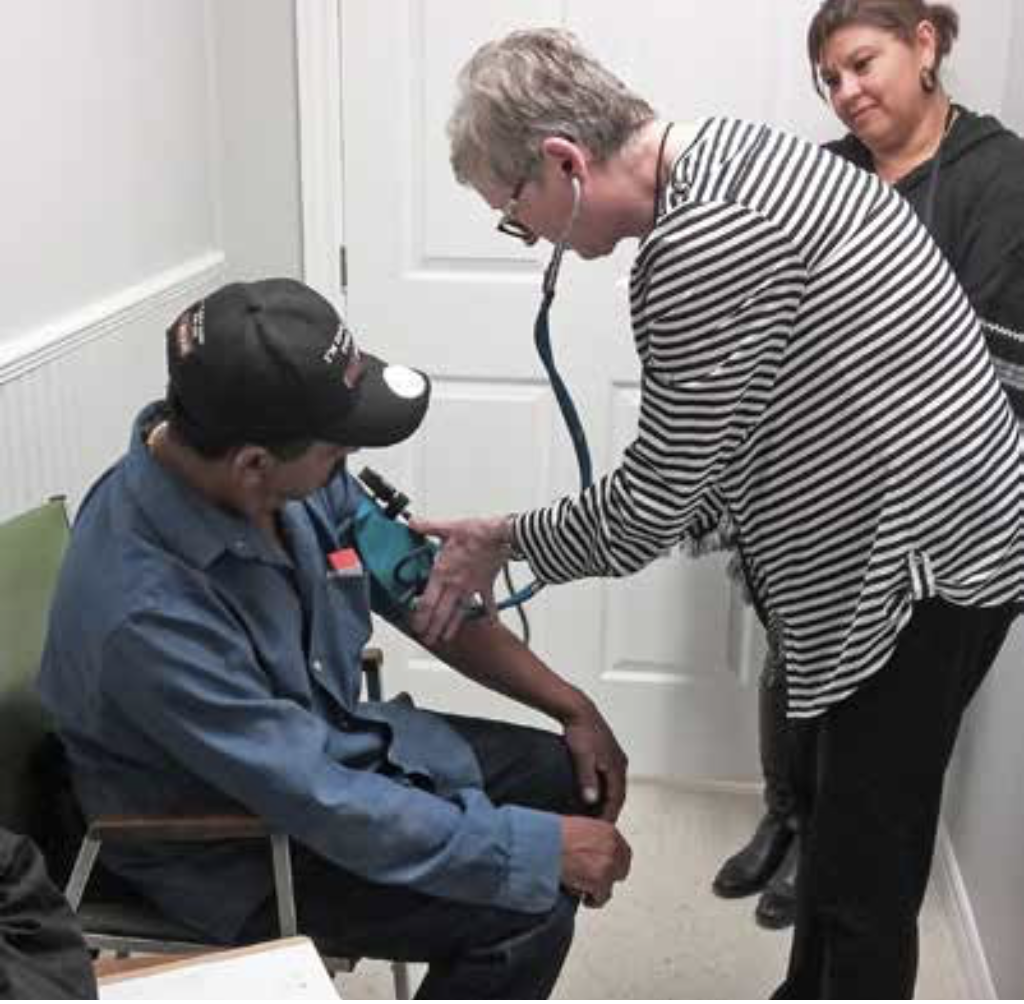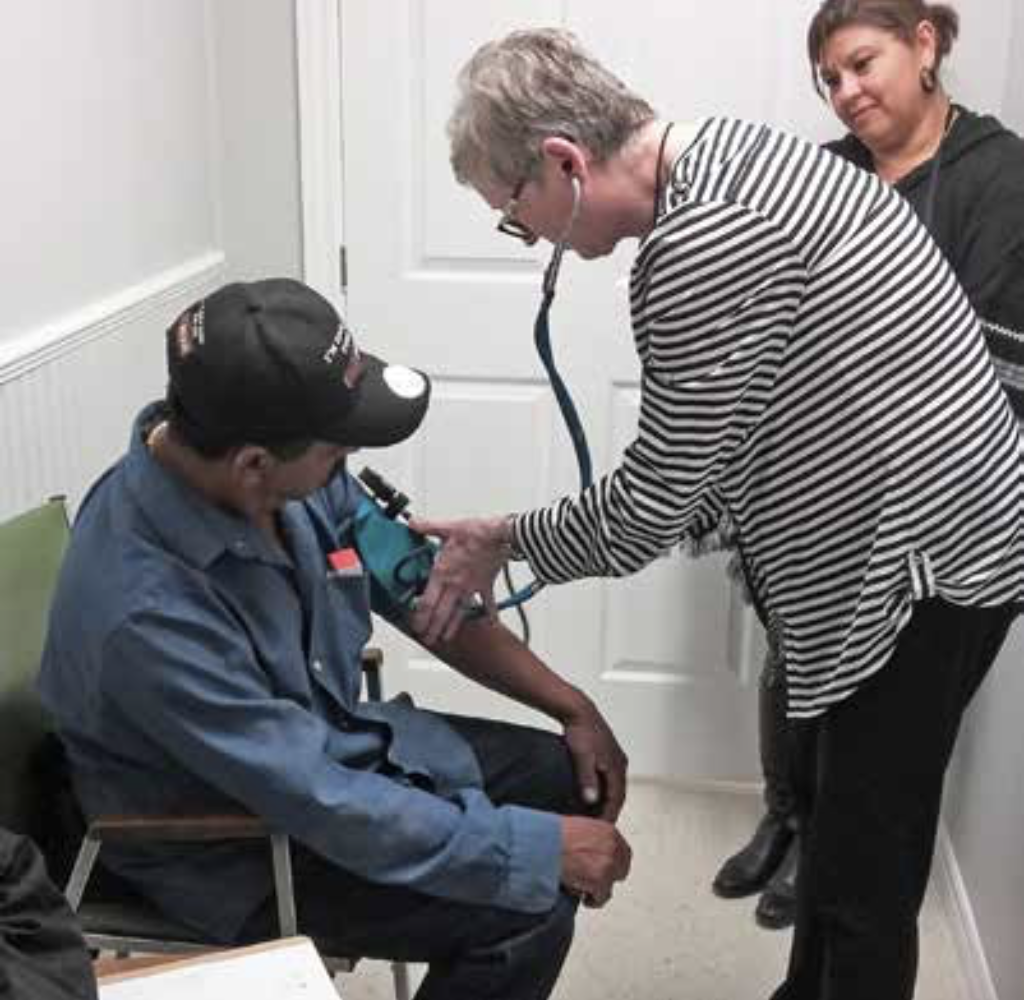
by Michael Hahn
What does one do when people, who speak only Spanish, show up in church on Sunday looking for non-emergency medical help?
That’s what Father Javier Arias, Rector of St. Alban’s Beamsville, pondered.
For the past three years, St. Alban’s has held Sunday evening services in Spanish for migrant farmworkers. Following the church service workers enjoy a complimentary meal. They can take an ESL class, use the free internet café or access free WiFi for calls home. They can now also see a doctor or nurse.
Many farmworkers put in 10–12 hour days, 60–65 hours a week. Most are here for five to eight months working on our farms to support their spouses and children back in Central America. They speak only Spanish and have little or no time to see a doctor during the week. They are often reluctant to tell their employers of illness or injury for fear of losing their jobs. Some are concerned they won’t be invited to return next year if they are perceived to be injured or sick.
If they do bother their employer with a request to see a doctor, how would they be able to communicate with one?
A solution was found by stepping out in faith and building a new medical clinic in the basement of St. Alban’s.
Volunteers built walls and painted. Someone donated an old examination table which had been re-upholstered. Medications and equipment were donated, and prayers offered to find doctors and nurses who would donate a couple of hours on a Sunday evening.
The prayers were answered.
Dr. Jennifer Conners, a family physician, volunteered her services and several nurses joined the team.
Translators were recruited and on Feb. 25, 2017, St. Alban’s opened its new Triage Clinic.
Here, Spanish-speaking patients can be seen for simple medical matters. They can get over-the-counter medications given to them and they can get medical advice. If they need a prescription filled, there is a drug store across the street.
Complex cases, or cases where further testing is required, are referred to the Beamsville Medical Centre, where an interpreter is made available. Doctors there have agreed to see referred patients weekday evenings by appointment. Volunteer drivers and interpreters are available for transportation, prescriptions and medical appointments.
One of our first patients was Renaldo (not his real name). Renaldo arrived from Mexico in February. It is his first time in Canada. He came here on an eight month contract to support his wife and children back home. He soon discovered he had trouble doing his job. He was often dizzy and disoriented. His employer no doubt would be sending him home if he remained unable to do the work. For Renaldo, being sent home would be catastrophic, which added to his stress.
Dr. Conners examined Renaldo and suspected a vision problem. Arrangements were made for Renaldo to see a friendly optometrist, who donated the eye examination. About a week later, Renaldo had new glasses provided to him at cost. The dizziness was gone and he could now do the work assigned to him.
I saw him and noticed he didn’t have a winter coat. Luckily, Renaldo was able to find a winter coat that fit him in the St. Alban’s free winter clothing store.
We tend to think of social justice work or Christian outreach as being someplace else, when perhaps some of it is right here.
Michael Hahn is a member of St. Alban’s Beamsville.

Resurrection of Hope in Thundering Waters